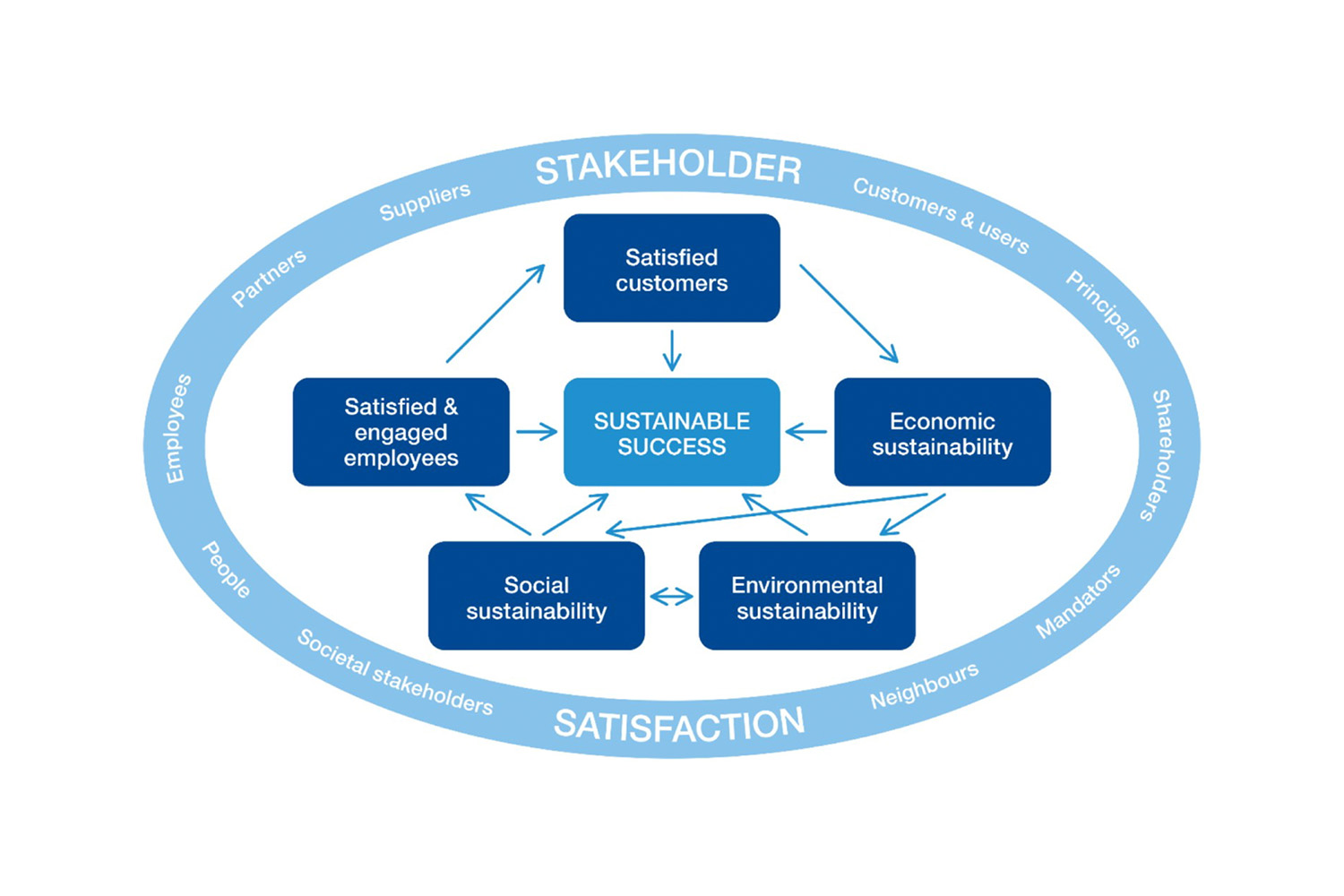The concept of sustainable development has become widely accepted among nations, organisations and individuals. According to the Bruntland Commission, Sustainable Development is defined as a development that meets the needs of the present generation without compromising the ability for future generations to meet their needs.
In this conceptual study, we outline a simplistic framework of aspects, variables, and relations constituting a workable definition of ‘sustainable success’ inspired by previous theoretical models. The aim is to contribute to a pragmatic clarification of how the concept of sustainable development could be more understandable, measurable, and manageable during global uncertainty and rapid change. A theoretical background is presented, followed by an overview of the method of investigation with a subsequent presentation of the results and a reasoning that frames the conceptual framework on critical constructs for measuring sustainable success based on stakeholder perceptions.
